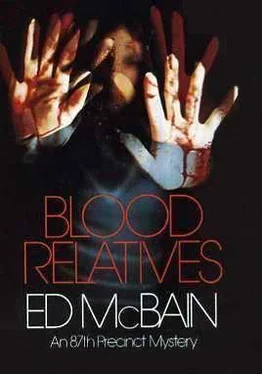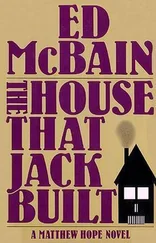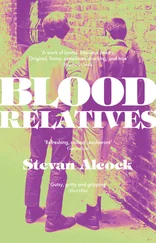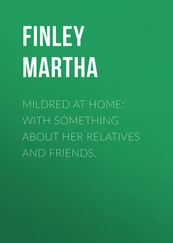Ed McBain - Blood Relatives
Здесь есть возможность читать онлайн «Ed McBain - Blood Relatives» весь текст электронной книги совершенно бесплатно (целиком полную версию без сокращений). В некоторых случаях можно слушать аудио, скачать через торрент в формате fb2 и присутствует краткое содержание. Город: New York, Год выпуска: 1975, ISBN: 1975, Издательство: Random House, Жанр: Полицейский детектив, на английском языке. Описание произведения, (предисловие) а так же отзывы посетителей доступны на портале библиотеки ЛибКат.
- Название:Blood Relatives
- Автор:
- Издательство:Random House
- Жанр:
- Год:1975
- Город:New York
- ISBN:978-0-394-48582-9
- Рейтинг книги:5 / 5. Голосов: 1
-
Избранное:Добавить в избранное
- Отзывы:
-
Ваша оценка:
- 100
- 1
- 2
- 3
- 4
- 5
Blood Relatives: краткое содержание, описание и аннотация
Предлагаем к чтению аннотацию, описание, краткое содержание или предисловие (зависит от того, что написал сам автор книги «Blood Relatives»). Если вы не нашли необходимую информацию о книге — напишите в комментариях, мы постараемся отыскать её.
Blood Relatives — читать онлайн бесплатно полную книгу (весь текст) целиком
Ниже представлен текст книги, разбитый по страницам. Система сохранения места последней прочитанной страницы, позволяет с удобством читать онлайн бесплатно книгу «Blood Relatives», без необходимости каждый раз заново искать на чём Вы остановились. Поставьте закладку, и сможете в любой момент перейти на страницу, на которой закончили чтение.
Интервал:
Закладка:
“Uh-huh,” Carella said.
“I do.”
“Sure.”
“So now I told you what you wanted to know, so how about let’s forget this assault stuff, okay?”
“I’ve got a better idea,” Carella said.
“Yeah, what’s that?”
“How about we send a car over to your house, see how your wife is doing, first of all. Then how about we check those bloodstains on your shirt with your wife’s blood, just to make sure it isn’t somebody else’s blood, okay? That’ll have to wait till morning, when the lab opens. Meanwhile, just for the fun of it, how about we book you for two counts of assault, okay?”
“ Two counts? My wife won’t press charges against me, she loves me too much.”
“We don’t.”
“Huh?”
“Me. And my partner. One, two. Two counts,” Carella said. “And that may be the least of your worries, Mr. Sully. Depending on what the lab has to say about those bloodstains.”
The lab got back to them at 10:00 the next morning. It told them that whereas Muriel Stark’s blood had been of the O group, and Patricia Lowery’s was of the A group; and whereas the scene of the crime and the bodies and clothing of both victims (the dead one and the living one) had been liberally sprinkled or spattered or smeared with blood from both groups, the stains on Louis Sully’s shirt were nonetheless of the B group, which substantiated his story about the fracas with his wife, since her blood happened to be in that group too. As for the lady, Sully had fractured not only her nose, but her jaw and her collarbone as well. At about the same time Patricia Lowery was being released from the hospital that morning, Mrs. Louis Sully was being moved from a ward to a semi-private room, which her doting husband had requested for her.
Carella and Kling, in the squadroom of the 87th, went through their file of known sex offenders, and then put out a request for similar files from every other detective squad in the city. It was 11:00 on a Sunday morning. Carella went home to his family. Kling went directly to Augusta Blair’s apartment.
During World War II, American bomber crews would fly out from bases in England to strike at enemy targets on the continent. They would fly through exploding flak, helpless in the grip of the bombsight, unable to veer from enemy fire, unable to dodge enemy aircraft until the bombs were released and the controls were back again in the hands of the pilot. And in the evening and in the night they would sit and drink in English country pubs, throw darts with the good old boys, sing an American song or two, and try to forget the terror they had known in the skies over Germany.
During the Vietnam war, combat infantrymen were flown to Saigon by helicopter from bases in the boonies, and from Saigon they were jetted to Hawaii or Japan for what was called R&R — Rest & Recuperation. They would go back into the jungle afterward, presumably refreshed and capable of once more dealing with the everyday horrors of warfare. There existed, for the airmen in World War II, and even for the foot soldiers in the Vietnam war, a curious form of double-think that allowed them to be combat troops one moment and quasi-civilians the next. In the morning you dropped a stick of bombs down a factory smokestack, and in the evening you dropped an egg into your lager. On Friday you were laying machine-gun fire across a trail leading into a suspect hamlet, and on Monday you were laying a whore in Honolulu. Helped you keep your sanity, they said. Moderation in everything, and everything in moderation.
It was something like that for cops.
When it got too horrible, you went home. You took a shower and changed your clothes. You mixed yourself a cold martini or a hot toddy. You patted your dog on the head or your wife on the behind. You philosophized a bit, maybe wagging your head or clucking your tongue every so often. After all (you told yourself), if a person chooses to become a policeman instead of, say, a florist, then he’s got to realize he will more often be dealing with violence than with violets. If he chooses to become a cop in the first place, then he’s got to recognize in the second place that the cops are a paramilitary organization, and that’s because they are involved in a daily war, and that is a war against crime, ta-ra! And in any war, you’ve got your victims, so if you can’t stand the sight of blood, then you shouldn’t become either a cop or a noted brain surgeon — who anyway makes a lot more money than a cop does. Or a butcher, either, if you can’t stand the sight of blood. But if you do become a cop, then there are also certain tricks of the trade you have to learn early if you hope to survive, and one of those tricks is the very same one the bomber crews learned in World War II, and the hapless infantrymen learned in the Vietnamese adventure — how to enjoy being a civilian every now and then. Carella went home to his family, and Kling went to see Augusta Blair.
There were those detectives on the squad who wondered aloud, and always in Kling’s presence, whether or not he really intended marrying that poor girl. Not that he was worth even her pinkie. A beauty such as Augusta Blair, whose face and form adorned the covers (not to mention the pages) of fashion and service magazines, whose somewhat breathy voice issued from radio and television loudspeakers alike, she of the jade-green eyes and auburn hair, she of the high cheekbones and even white teeth, she of the good breasts, narrow waist, wide hips, and splendid wheels — what right had a clod like Kling even to consider expecting her hand in marriage? Which he had expected. And which he’d asked for. And which she’d agreed to give to him. But that had been back in January, when a hood named Randall M. Nesbitt (the world might forget what he had done, or almost done, but Kling never would) had caused an upheaval in West Riverhead the likes of which the cops had never before seen, and never hoped to see again. Kling had asked Augusta to marry him on the night Nesbitt led his misguided street troops on what was to have been his last glorious peace-keeping mission. She had said yes moments before Kling walked to the phone and heard Carella’s voice urging him to get uptown because all hell was breaking loose. That had been in January. This was now September. The boys of the 87th wanted a wedding, or at least a bar mitzvah. But Meyer Meyer’s youngest son would not be thirteen till next summer, and Cotton Hawes showed no indication of ever asking Christine Maxwell to marry him, so that left Kling and Augusta as the only immediate possibilities on the horizon.
Sanity. It all had to do with keeping one’s sanity. Weddings, birthdays, bar mitzvahs, anniversaries (no funerals, thank you; the squad dealt with too many funerals, most of them involving dead strangers), whatever joyous occasion the squad could find to celebrate, whatever helped to create a flimsy sense of tradition was all to the good. Like those World War II bomber crews, they were only protecting their sanity. They were finding opportunities that made them feel like ordinary civilians every now and then. They were keeping the old aspidistra flying. It would have gladdened their hearts, those sentimental old bastards, to have known that on this Sunday morning in September — Sunday, September 7, to be exact — Kling and Augusta were discussing plans for their wedding. They were, in fact, trying to decide which members of the squad should be invited to the wedding.
“The thing I don’t want this to turn into,” Augusta said, “is some kind of Patrolmen’s Benevolent Association event, if you know what I mean.”
“Or a meeting of the Emerald Society,” Kling said.
“Or something, you know, that looks like all the cops in the city are gathered to hear the Police Commissioner speak instead of us getting married.”
Читать дальшеИнтервал:
Закладка:
Похожие книги на «Blood Relatives»
Представляем Вашему вниманию похожие книги на «Blood Relatives» списком для выбора. Мы отобрали схожую по названию и смыслу литературу в надежде предоставить читателям больше вариантов отыскать новые, интересные, ещё непрочитанные произведения.
Обсуждение, отзывы о книге «Blood Relatives» и просто собственные мнения читателей. Оставьте ваши комментарии, напишите, что Вы думаете о произведении, его смысле или главных героях. Укажите что конкретно понравилось, а что нет, и почему Вы так считаете.












